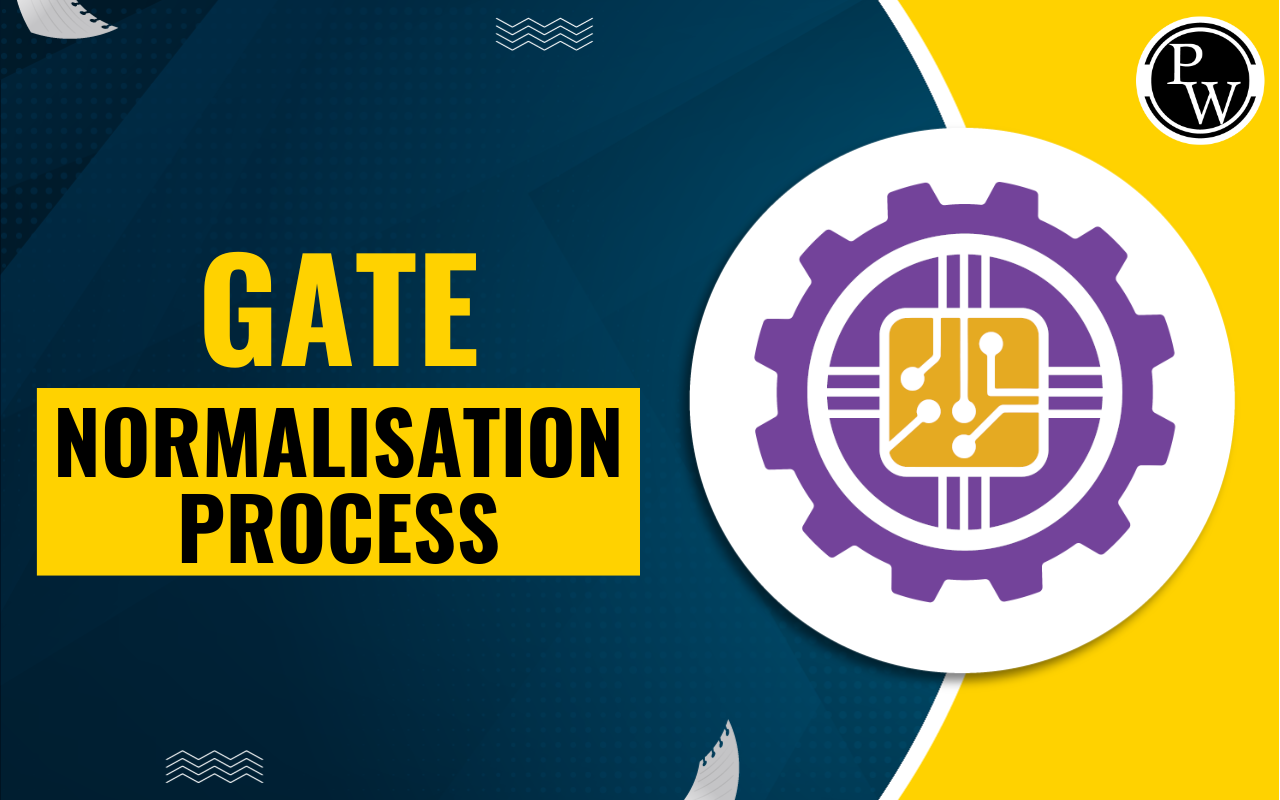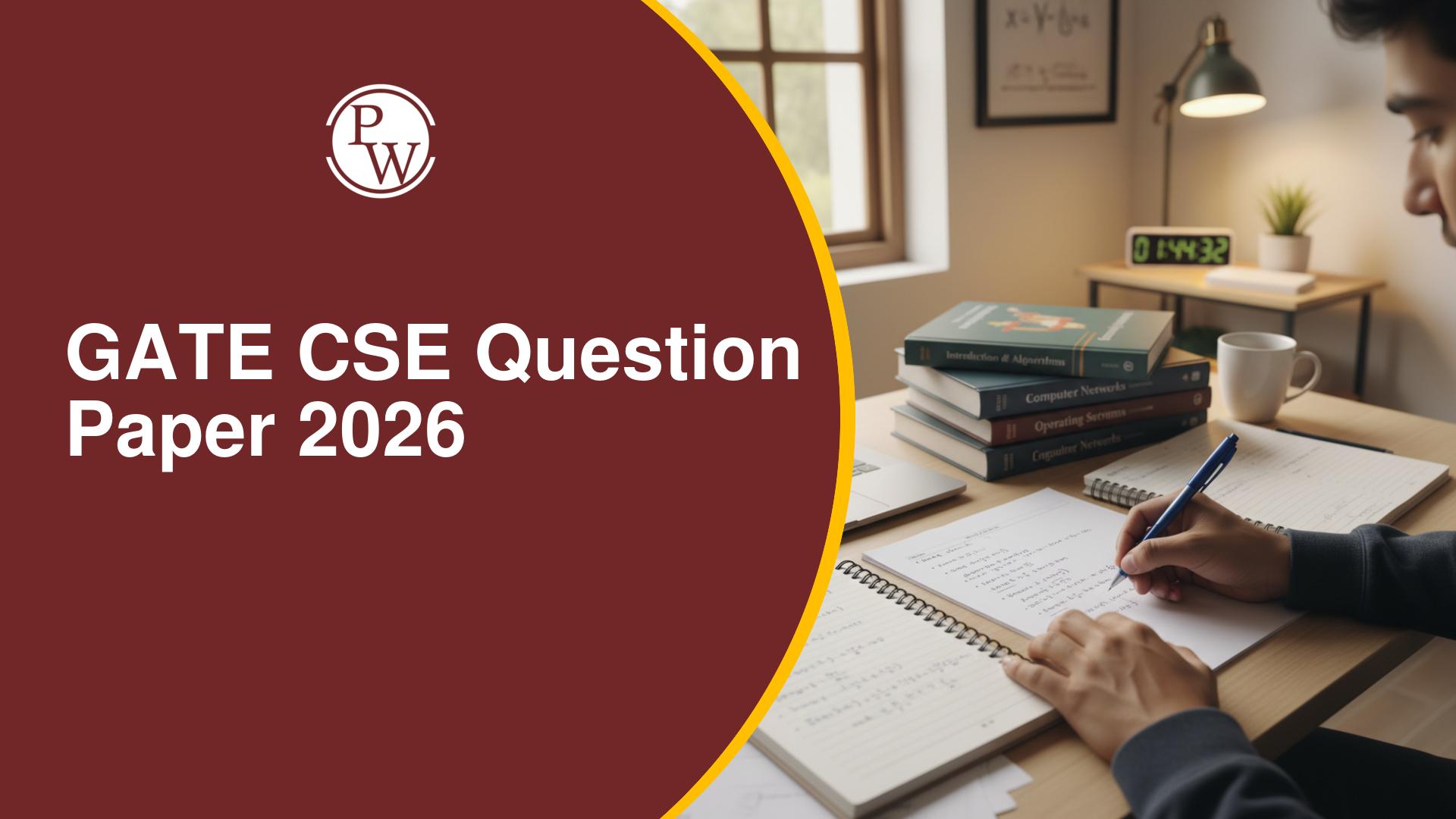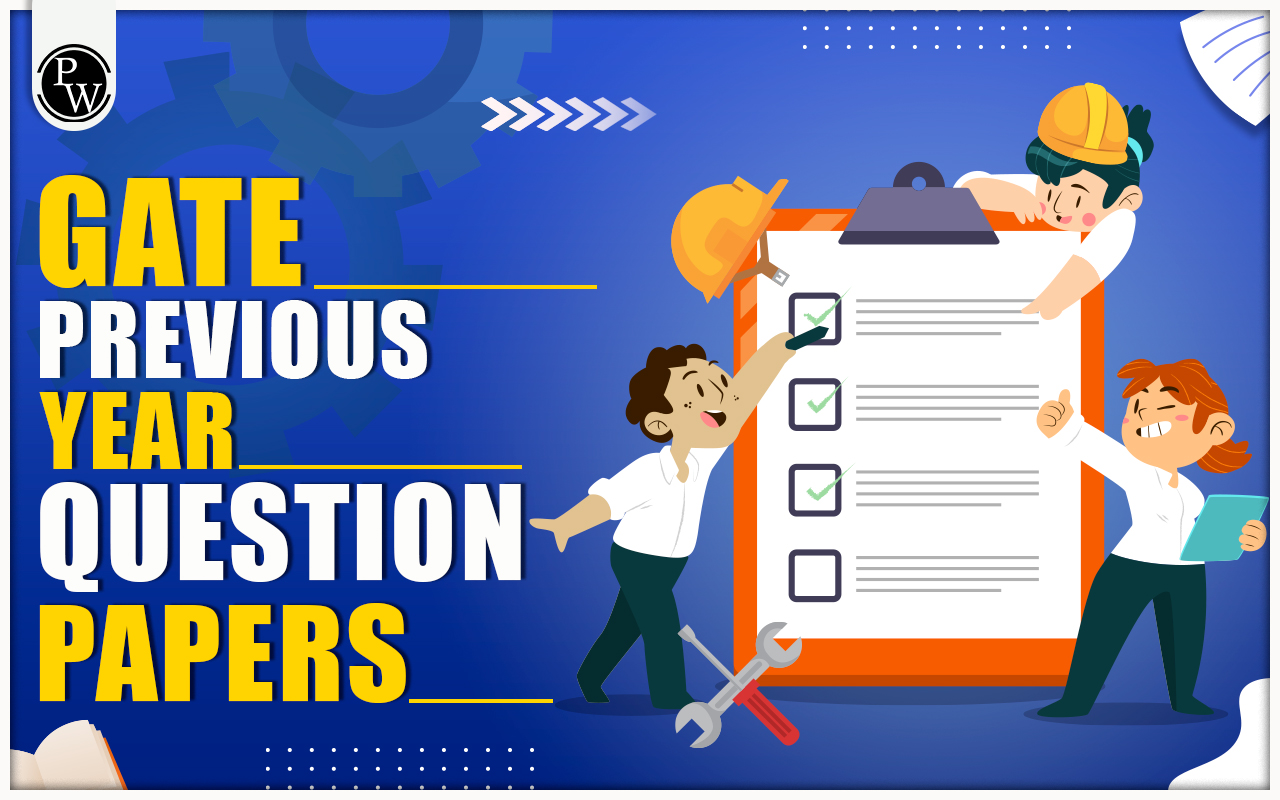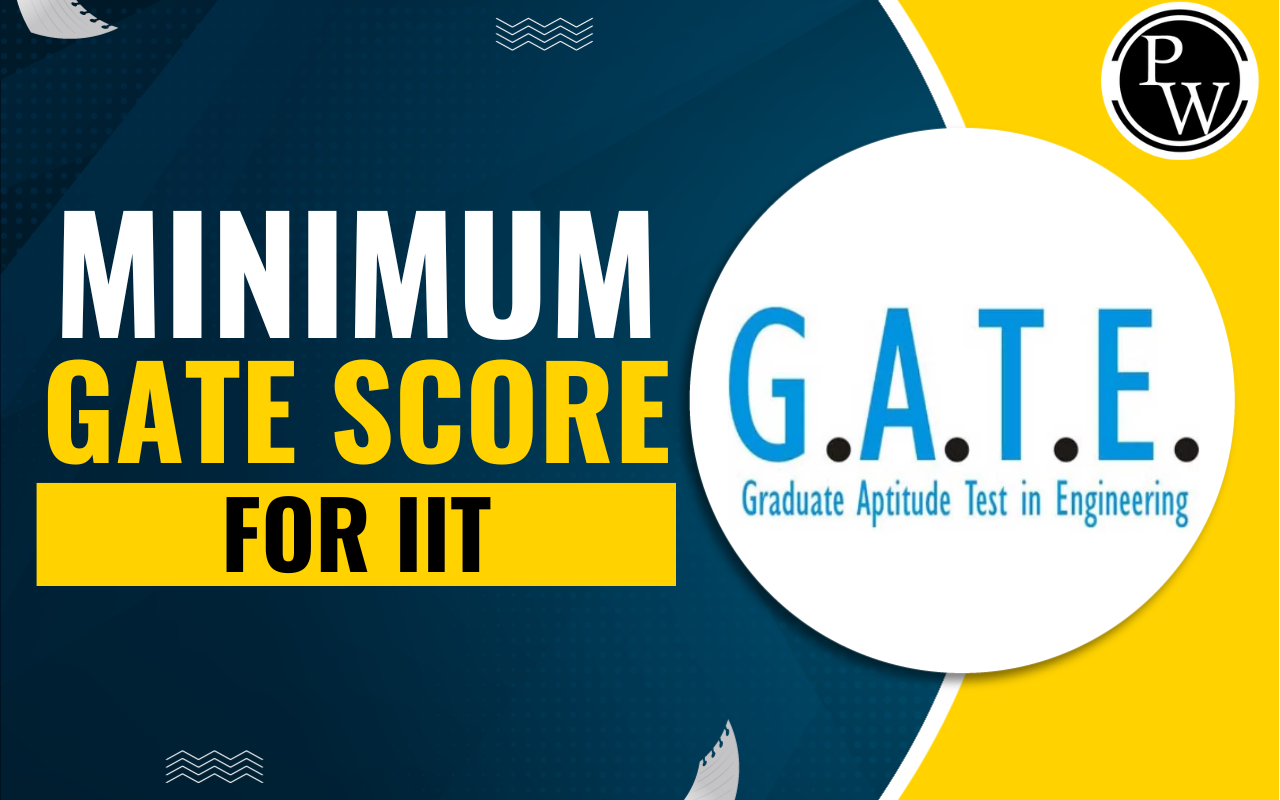
GATE vs CAT - Both are entrance exams for graduate students seeking admission to higher levels of study. Both, however, have their differences. Have you ever been perplexed by the difference between GATE and CAT? Do you want to know which is superior, GATE or CAT? Have you ever wondered which exam is more difficult, GATE or CAT? With this post, we sought to answer all of these questions.
The CAT and GATE examinations are both entrance exams for different professions that assess students' aptitude. CAT is used for MBA admissions to top B-schools in India, whereas GATE is used for MTech programs at prominent universities such as IITs and NITs, as well as career prospects in government engineering sectors. This article will compare and contrast the CAT and GATE exams, as well as their respective difficulty levels.What is the GATE Exam?
The Graduate Aptitude Test of Engineering is a three-hour computer-based test administered at the national level. In addition to M.E/M. Tech programs, the exam allows for direct PhD admission to IITs (Indian Institutes of Technology), NITs (National Institutes of Technology), IIITs (Indian Institutes of Information Technology), and other institutes/universities around India. A GATE paper has 65 questions with a total of 100 marks, consisting of Multiple Choice Questions (MCQ), Multiple Select Questions (MSQ), and/or Numerical Answer Type (NAT) Questions. Every year, almost nine lakh applicants take the GATE exam. With this figure, you can picture the strong rivalry that occurs each year for the restricted spots in prestigious universities. As a result, the vacancy to student ratio is around 1: 360. Also Read: Full Form of GATEWhat is the CAT Exam?
The CAT (Common Admission Test) is an entrance exam for MBA admissions that also serves as a gateway to 20 IIMs and other B-Schools in India. The CAT exam consists of 100 multiple-choice questions from Verbal Ability & Reading Comprehension, Data Interpretation & Logical Reasoning, and Quantitative Ability. Every year, about two lakh applicants take the CAT exam. However, because the number of available seats in IIMs and premier institutes is restricted, competition is fierce. To be considered for admission, one must score at or above the 95th percentile. To get admission, one must have a strong academic and professional background, as well as perform well in the Group Discussion and Personal Interview rounds. Candidates admitted to the MBA program might specialize in Operations, Human Resources, Marketing, Finance, or Business Analytics. Suggested Read: M.Tech vs PSU, Govt Job After GATE, Salary, Scope In IndiaGATE Vs CAT Exam
- GATE is only for engineering and science graduates in particular subjects. In contrast, students from any graduate background, such as BA, B.Sc., B.Com, and BBA, are qualified for the CAT exam.
- The GATE result can be used to get a job in a PSU, however the CAT score can only be used to get into MBA or PGDM programs. A CAT score will not get you a job application.
- GATE focuses on your topic knowledge in your undergraduate specialization, Whereas CAT focuses on your general knowledge, aptitude, and logical thinking skills.
GATE Vs CAT Exam Highlights
The question on a candidate's mind now is whether to pursue GATE or CAT. Both are difficult admission tests in India. Clearing the GATE with strong scores may be the deciding factor in admittance to M.E/M. Tech programs at IITs, NITs, or other renowned universities, or even PSU Recruitment Through GATE. Meanwhile, clearing the CAT examinations and achieving high scores is the only route to gain admission to top business schools to pursue an MBA (Master of Business Administration).|
GATE Vs CAT Highlights |
||
| Factors | GATE | CAT |
| Purpose of the Exam | GATE is an entrance exam for postgraduate degrees in engineering and technology. A number of PSUs (Public Sector Undertakings) use the exam as a requirement for employment eligibility throughout the recruiting process, including BHEL, IOCL, NTPC, and others. | The CAT is an entrance exam for several management programs offered by IIMs (Indian Institutes of Management) and other prestigious Indian business schools. Admission to these programs is the only factor considered while using the exam. |
| Exam Structure | GATE is a computer-based test (CBT) that takes 3 hours and consists of 65 questions for 100 marks. The exam comprises three types of questions - MCQs (Multiple Choice Questions), MSQ (Multiple Select Questions) and NAT (Numerical Answer Type) questions. The MCQs & MSQs carries 1 or 2 marks each, while NAT questions carry 1 or 2 marks each, and there is no negative marking for NAT questions. | The CAT is also a Computer based test that takes 2 hours and consists of 76 questions worth 228 marks. There are three types of questions on the exam: MCQs, TITA (Type in the Answer) questions, and MCQs with negative markings. TITA questions carry 3 marks with no negative marking, while MCQs with negative markings carry one mark with a -1 penalty for each incorrect answer. |
| Difficulty Level | GATE is a highly technical exam, with questions meant to assess students' mastery of engineering concepts. The exam is highly competitive, with a high difficulty level, making it tough for candidates to secure the exam. | The CAT is designed to assess candidates' aptitude and logical reasoning abilities. The exam is highly competitive, and the difficulty level is also extremely high, making it tough for candidates to pass. |
| Syllabus | The GATE syllabus is extensive and covers all engineering courses thoroughly. The exam assesses applicants' knowledge of fundamental engineering concepts as well as their ability to apply them to real-world problems. Engineering mathematics, computer science, electrical engineering, mechanical engineering, civil engineering, and other topics are included in the syllabus. | Quantitative Aptitude, Verbal Ability, Reading Comprehension, and Data Interpretation and Logical Reasoning are the three sections of the CAT syllabus. The syllabus assesses candidates' abilities to solve complex problems and think logically. |
| Score Validity | GATE scores are valid for three years and can be used to apply for postgraduate degrees and PSU posts throughout that time. | CAT scores are valid for one year and can be used to apply for management programs throughout that time. |
GATE Vs CAT - Exam Pattern & Syllabus
Here's a table with an extensive comparison of the CAT and GATE exam patterns and syllabuses:| GATE Vs CAT Exam Pattern | ||
| Parameter | GATE | CAT |
| Exam Conducting Body | IIT’s | IIM’s |
| Mode of Exam | Online | Online |
| Purpose of Examination | Entrance exam for admission to pursue M.Tech / ME, or PSUs | Entrance exam for admission to pursue MBA (from IIM’s, FMS, MDI, SP JAIN, etc.) |
| Exam Pattern | Computer-based test (CBT) | Computer-based test (CBT) |
| Total Sections | Multiple papers based on the selected subject paper (27 papers available) |
Three sections:
|
| Type of Questions | Multiple-choice questions (MCQs) and Numerical Answer Type (NAT) questions | VARC: Multiple-choice questions (MCQs) and non-MCQs DILR: MCQs and non-MCQs QA: MCQs and non-MCQs |
| Total Marks | 100 | 198 |
| Number of questions |
65
|
100
|
| Marking Scheme | MCQs: +1 for correct answers, -1/3 for incorrect answers NAT: +1 or +2 for correct answers (partial and full marks), no negative marking for NAT questions | VARC: +3 for correct answers, -1 for incorrect answers DILR: +3 for correct answers, -1 for incorrect answers QA: +3 for correct answers, -1 for incorrect answers |
| Exam Duration | 3 hours (180 minutes) for a single paper | 2 hours (120 minutes) |
| Exam Sections’ Sequence | Sequence varies based on the chosen paper | VARC → DILR → QA |
| Syllabus | Subject-specific syllabus based on the chosen paper, including engineering mathematics and core subjects related to the discipline | VARC: Reading comprehension, English language usage, grammar DILR: Logical reasoning, data interpretation QA: Algebra, geometry, Arithmetic, number system, modern maths, and more |
GATE Vs CAT - Eligibility Criteria
In a table, below is a detailed comparison of the eligibility criteria for the CAT and GATE exams.| GATE Vs CAT- Eligibility Criteria | ||
| Eligibility Criteria | GATE Exam | CAT Exam |
| Educational Qualification | A bachelor's degree in engineering, technology, or science OR a master's degree in any discipline of science/mathematics/statistics/computer applications OR an equivalent is required. | A bachelor's degree from a recognized university or institute in any discipline is required. |
| Minimum Percentage | There is no specific minimum % required. | Candidates from the general and OBC-NC categories must have at least 50% in aggregate or an equivalent CGPA. Candidates from the SC, ST, and PWD categories must have a minimum of 45%. |
| Graduation Duration | There should be no specific duration for the bachelor's program. | There should be a minimum three-year duration for the bachelor's program. |
| Final Year Students Eligibility | Yes, final-year students are eligible to apply. | Students in their last year of graduation are eligible to apply as long as they complete their coursework within the allotted time. |
| Age Limit | No age limit for GATE aspirants. | There is no upper age limit for applying or appearing in CAT. |
| Work Experience | Working experience is not required. | Working experience is not required. |
| Number of Attempts | There is no set limit on the number of GATE attempts. | There is no set restriction to the number of CAT attempts. |
| Nationality | GATE is available to both Indian and international applicants. | The CAT is mostly for Indian individuals, however some abroad candidates may apply as well. |
GATE Vs CAT - Difficulty Level
This table presents a comprehensive analysis of the difficulty level for the CAT and GATE exams.| GATE Vs CAT - Difficulty Level | ||
| Aspect | GATE Exam | CAT Exam |
| Difficulty Level | Generally difficult, especially in technical disciplines, with an emphasis on in-depth understanding of the selected engineering/science field. | Considered highly challenging due to its competitive nature, time constraints, and the requirement for strong problem-solving skills. |
| Competitiveness | Competitive, with a diverse range of technical and engineering courses that attract individuals from a variety of backgrounds. | It is extremely competitive due to the fact that it is primarily for admission to premier Indian business schools. There is severe competition for a limited number of seats. |
| Problem-Solving Skills | Subject-specific knowledge, analytical abilities, and the ability to apply concepts in the selected engineering/science sector are all emphasized. | Strong analytical and problem-solving abilities are required, particularly in the Quantitative Ability, Data Interpretation, and Logical Reasoning sections. |
| Time Management | Effective time management is required, especially when handling difficult technical problems and numerical questions. | Due to the time limits in each section, efficient time management and rapid thinking are required. |
| Subject-Specific Knowledge | Requires extensive subject-specific expertise, which may limit its availability to candidates from specific disciplines. | Because it requires a fundamental understanding of mathematics and English, it is accessible to a broader range of people. |
| Overall Difficulty Perception | Perceived as difficult, particularly for individuals outside of the selected engineering/science field. The difficulty level changes depending on the paper chosen. | Perceived as difficult, particularly for individuals without a strong background in mathematics and problem solving. |
GATE Vs CAT : Which one is tougher?
In various ways, these two exams are tough. They both necessitate extensive research, intensive practice, and dedication. Toughness varies from one student to another. GATE may be a difficult exam for candidates who have difficulty mastering key core subjects. The CAT will be more difficult if one is inadequate in Data Interpretation or English Comprehension. Similarly, those with strong comprehension skills, solid knowledge, and speed in analyzing logical issues will benefit from CAT. GATE is easier than CAT for students who know their graduation courses well and are strong in mathematics. To summarize, GATE and CAT are two of the most popular higher education entrance exams in India. While GATE is an entrance exam for admission to postgraduate engineering and technology programs, CAT is an entrance exam for various management programs provided by IIMs and other top B-Schools in India. Both examinations have distinct purposes, therefore comparing them isn't fair. However, if we must compare, GATE is a highly technical exam, whereas CAT assesses students' aptitude. Read: GATE Application Form 2024 Correction Window Link @gate2024.iisc.ac.in| Also, check | |
| GATE vs CAT | GATE vs NET |
| GATE vs SSC CGL | GATE vs SSC JE |
| M.Tech vs MBA | GATE vs ESE |
GATE vs CAT FAQs
Which exam in India provides better job possibilities, the GATE or the CAT?
If your professional aim is to pursue a management job in India, CAT is the preferred choice because it offers doors to top B-schools and management roles.
Does CAT provide more opportunities and higher pay than GATE?
Yes, CAT can lead to profitable prospects in business and management, generally with more paying potential than GATE-related employment.
Can CAT assist me in building a solid professional network in the corporate world?
Without a doubt, CAT's links to prominent B-schools and industry experts can help you create a strong professional network that will benefit your career.
Is it permissible to use a calculator in the GATE or CAT exam?
Candidates are permitted to use calculators during the GATE and CAT examinations. Candidates ought to read the exam guidelines as there can be restrictions on the types of calculators that are permitted.
🔥 Trending Blogs
Talk to a counsellorHave doubts? Our support team will be happy to assist you!

Free Learning Resources
PW Books
Notes (Class 10-12)
PW Study Materials
Notes (Class 6-9)
Ncert Solutions
Govt Exams
Class 6th to 12th Online Courses
Govt Job Exams Courses
UPSC Coaching
Defence Exam Coaching
Gate Exam Coaching
Other Exams
Know about Physics Wallah
Physics Wallah is an Indian edtech platform that provides accessible & comprehensive learning experiences to students from Class 6th to postgraduate level. We also provide extensive NCERT solutions, sample paper, NEET, JEE Mains, BITSAT previous year papers & more such resources to students. Physics Wallah also caters to over 3.5 million registered students and over 78 lakh+ Youtube subscribers with 4.8 rating on its app.
We Stand Out because
We provide students with intensive courses with India’s qualified & experienced faculties & mentors. PW strives to make the learning experience comprehensive and accessible for students of all sections of society. We believe in empowering every single student who couldn't dream of a good career in engineering and medical field earlier.
Our Key Focus Areas
Physics Wallah's main focus is to make the learning experience as economical as possible for all students. With our affordable courses like Lakshya, Udaan and Arjuna and many others, we have been able to provide a platform for lakhs of aspirants. From providing Chemistry, Maths, Physics formula to giving e-books of eminent authors like RD Sharma, RS Aggarwal and Lakhmir Singh, PW focuses on every single student's need for preparation.
What Makes Us Different
Physics Wallah strives to develop a comprehensive pedagogical structure for students, where they get a state-of-the-art learning experience with study material and resources. Apart from catering students preparing for JEE Mains and NEET, PW also provides study material for each state board like Uttar Pradesh, Bihar, and others
Copyright © 2026 Physicswallah Limited All rights reserved.









